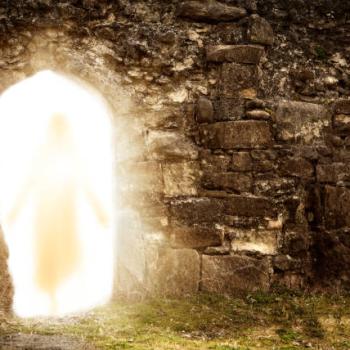 The movement called “Sex positive” is part positive, part not, part gain and part loss. Positively, it pushes against historic and still operating patriarchy, intolerance, and prudery. Negatively, it operates from the same hyper-individualism that inflicts modern Western societies. This post imagines recovering what is lost in of modern sexual mores.
The movement called “Sex positive” is part positive, part not, part gain and part loss. Positively, it pushes against historic and still operating patriarchy, intolerance, and prudery. Negatively, it operates from the same hyper-individualism that inflicts modern Western societies. This post imagines recovering what is lost in of modern sexual mores.
There was a toy sword and all seven grandchildren in one house. Two of the children were in conflict. One was the owner of the sword. The other was playing with it – “the wrong way.” Before the incident could get out of hand, I tried imparting some advice from “Eight Sex-Positive Things You can Say to your Kids that Have Nothing to do with Sex.” I have my daughter to thank for calling my attention to this article. The sex-positive saying for that judgmental grandchild was:
There’s no right way to play with a truck (or a sword).
Canadian philosopher Charles Taylor says change is hardly ever in one direction only. It’s almost always partly up and partly down, partly gain and partly loss. The movement called “Sex Positive” is like that. Something is gained, but at a cost. The romantic wants to retrieve the treasures of the past, hopefully without sacrificing present gains. I confess to being that kind of romantic.
Here are some more things the article on sex positive has to say that are not about sex:
- If they’re not having fun, you have to stop. If you’re not having fun, they have to stop.
- Everyone’s body deserves respect.
- You are loved and valued.
The article begins with a more general statement that is about sex. The sex positive movement “emphasizes that ‘good sex’ is defined as safe, informed, consensual, and whatever else it also is beyond those things is best left up to the people participating in the act.” There’s much in the article’s advice about what to tell children that can serve them well when sexual activity becomes a possibility for them–and much that will help them before that time to be safe from sexual predators. The general rule about safe, informed, consensual sex–and leave everything else to the private individual to determine–tries too hard I think, to guarantee those gains. The world says a lot of unhealthy things about sex–male machismo, female submissiveness, what’s “dirty” and what’s not. About all that, sex-positive is a step forward. When it says, “Just be safe, be informed, make your own decision and let others make theirs,” unfortunately, as in every other area of contemporary American/Western values, the individual rules.
The romantic in me looks to the past and also to living cultures in other areas of the world, and sees something more than individual choice and private beliefs in sexual matters. In most of the world and through most of history, the priority that the modern Western world gives to the individual would have seemed very odd. You are a member of a family, a tribe, a community before you are an individual. You absorb community values, and you have a chance to put your stamp on them, but you never just strike out on your own. I think that will always be true. The individualistic self, deciding for itself what sex and other things are going to mean for it, is a modern fiction. Better to accept that sex comes loaded with meaning before we get our turn.
It’s not too hard to name some of those meanings. They include
- mystery
- gift
- hope
- losing one’s self in some way and ending up renewed
Dying and rising are good metaphors for sex. (Or maybe sex is the metaphor.) A French phrase for orgasm is “la petit mort,” the little death. Good sex is safe sex but in only one or a few ways, not in every way. I could have added “danger” to the list of meanings that sex comes with. At any rate sex is not tame. Sex positive cannot change that.
Good sex is informed, but again in only a few ways, not in every respect. You can’t know exactly what sex will do to you, and I think that holds true even after many years of an active sex life. The element of mystery never leaves, not if it’s good sex.
Good sex is consensual, but that can easily sound like a business deal. Good sex is much more than two people entering into a partnership. Probably it’s too late in the day to expect sex to come always with community blessing. I say probably, but nothing is fated. Change can be undone and so can our new-found hyper-individualism. “Love and marriage, like horse and carriage.” That would be a romantic retrieval, indeed. But certainly, even in this age and even if it’s often ignored, sex has a community dimension.
At this point a Catholic like me can’t help bringing God in. For us marriage is a sacrament because it echoes God’s love–more than an echo, it embodies God’s love. We believe God’s love is faithful, lasting, and creative–faithful, fruitful, and forever, I like to say; and it justifies hope for the future. We see God’s love in miniature in many marriages, and that reinforces our faith and our hope.
In a secular age what relevance does that kind of talk have? Listening to common rhetoric about rights connected with love, marriage, and sex (“the right to marry whom we love”), I would say this age has yet to work that out. But maybe same-sex partners who wish to be more than partners know more about love than this language of rights suggests—know and would teach a cynical world the importance of commitment. After an era when you got married only (likely) to end up divorced, after the “free” love of the sixties, after “Who needs marriage?” maybe faithfulness with community support could be the new counterculture.
I think something like the Catholic sacramental view of marriage can be worked out in secular terms. Hope for the future is a necessary virtue in any society. The ability to keep promises is key to that hope. When we have the example of people making their most important promise and being faithful to it “forever,” surely society benefits. Even with God out of the picture, it’s a sign that there is a future worth believing in.
Hope requires creativity. A society of endless repetition is not a hopeful society. The ancient Jews were a hopeful society because they believed God could do something new. Most of the surrounding cultures were fatalistic about the future. They believed in the endless repetition of what had been, cycles constantly recurring, going nowhere. When in the context of politics or fashion or social affairs you hear about pendulums swinging back and forth, you are getting an echo of this ancient belief system. Children are a sign, even without God, of creativity alive in the world. The willingness of couples to have babies or to raise children that are not their own makes a meaningful future possible. Children are more than a way to keep society going. They are the blessed sign that something new is possible; history is going somewhere, even if we can’t see where, even – especially – when our children confound us.
All of these things—the future, hope, community, mystery—are part of good sex; and I haven’t even mentioned that it’s enjoyable and fulfilling and energizing and capable of sustaining a life of sometimes difficult commitment. And I don’t agree with sex positive that this meaning is “best left up to the people participating in the act.” It’s there, outside us, part of the story to which we belong, and therefore also, acknowledged or not, inside us.












